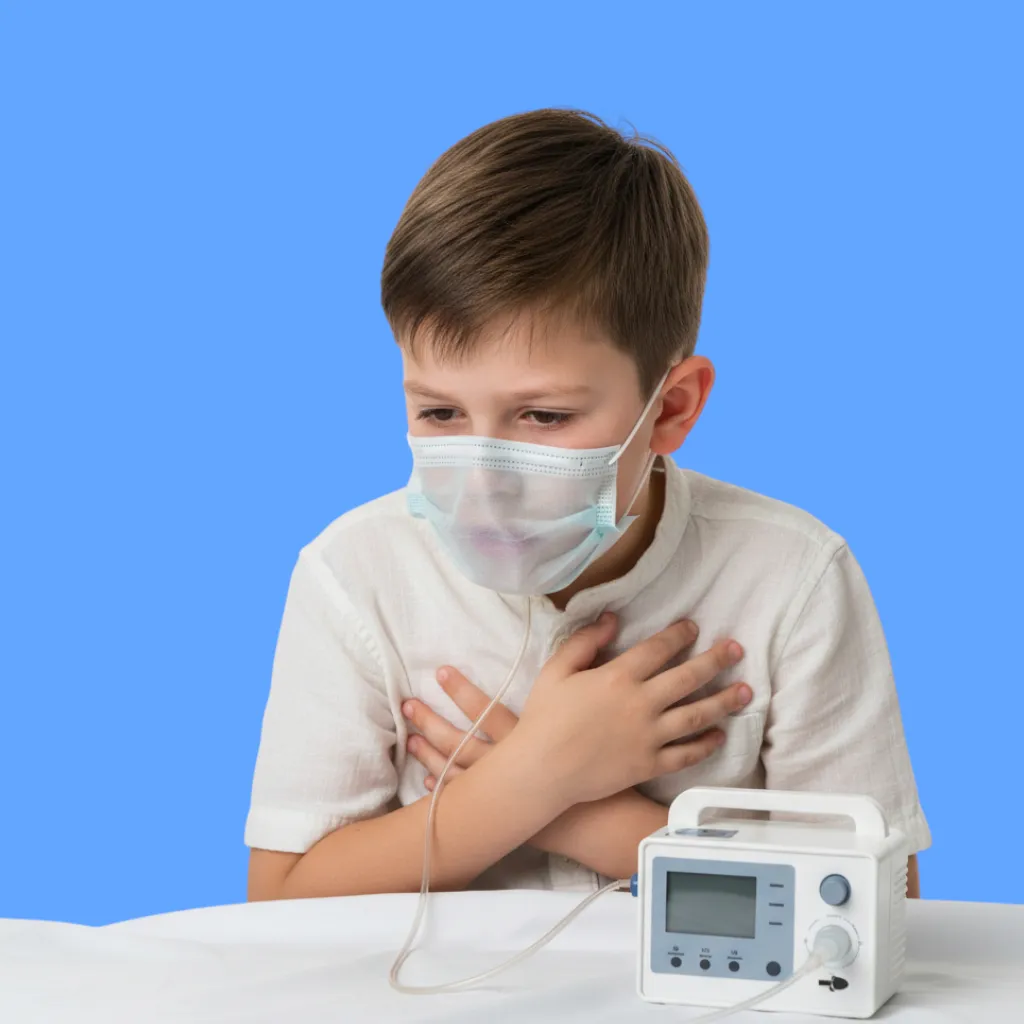What is pneumonia?
Pneumonia is an infection that affects the lung tissues and leads to inflammation of the alveoli, which may fill with fluid or pus, making breathing difficult.
This disease does not distinguish between young or old, but it becomes more dangerous in children, the elderly, or those with weakened immune systems.
In some cases, pneumonia can be mild and the patient recovers at home, while in other cases it may require hospitalization. Its causes vary between bacteria, viruses, and sometimes fungi.
What are the causes of pneumonia?
There are several common causes of pneumonia, including:
- Bacterial infections such as pneumococcus or Haemophilus influenzae
- Viral infections like influenza or coronavirus
- Fungal infections, especially in people with weak immunity
- Inhalation of contaminated substances such as food or vomit, known as aspiration pneumonia
- Hospital-acquired infections
- Weak immune system due to chronic diseases or immunosuppressive medications
- Smoking and poor nutrition
- Old age or infancy
What are the common symptoms of pneumonia?

There are several common symptoms that a patient may experience, including:
- Persistent cough, often with phlegm or mucus
- High fever
- Shortness of breath or difficulty breathing
- Chest pain that worsens with coughing or breathing
- Chills and sweating
- General fatigue and loss of appetite
- Rapid heartbeat
- Nausea or vomiting
- Mental confusion in elderly people
- Difficulty feeding or excessive sleep in infants
When should you see a doctor?
It is advised to consult a doctor urgently if any of the following occur:
- Fever lasting more than two days
- Clear difficulty in breathing or rapid breathing
- Severe chest pain
- Blue discoloration of lips or skin
- Confusion or hallucinations in elderly people
- Inability of a child to feed or sleep
- Appearance of blood in phlegm
- Worsening of symptoms of a pre-existing chronic disease
How is pneumonia diagnosed?
Pneumonia is diagnosed using several methods, including:
- Clinical examination and listening to the lungs with a stethoscope
- Chest X-ray to identify the location of inflammation
- Blood tests to detect signs of infection
- Sputum analysis to determine the type of pathogen
- Measuring oxygen levels in the blood using a pulse oximeter
- In complex cases, a CT scan or blood culture may be requested
What are the treatment methods for pneumonia?
There are several ways to treat pneumonia, including:
- Antibiotics for bacterial pneumonia
- Antiviral medications for viral infections
- Antifungal medications if the cause is fungal
- Fever reducers and pain relievers
- Intravenous fluids in severe cases
- Oxygen therapy to improve breathing
- Complete rest and proper nutrition
Can pneumonia be cured?
Yes, pneumonia can be cured in most cases, especially if diagnosed and treated early. Recovery time varies depending on the type of infection, the patient's age, and overall health condition.
Some cases may recover within two weeks, while severe cases may take longer, especially in elderly people or those with chronic illnesses.
What are the prevention tips for pneumonia?
There are several tips to help prevent pneumonia, including:
- Getting vaccinated, such as pneumococcal, influenza, and RSV vaccines
- Washing hands regularly and avoiding touching the face
- Avoiding smoking or polluted environments
- Strengthening immunity through proper nutrition and adequate sleep
- Managing chronic diseases regularly
- Avoiding contact with people who have colds or flu
- Proper ventilation at home and avoiding excessive humidity
- Breastfeeding infants during the first six months
What are the possible complications of pneumonia?
Some complications may occur if treatment is neglected, such as:
- Fluid accumulation around the lungs
- Lung abscess or pus collection inside the lungs
- Acute respiratory failure
- Spread of infection to the bloodstream
- Worsening of chronic diseases like heart disease or diabetes
- Death in severe cases or among vulnerable groups
Frequently asked questions about pneumonia
Is pneumonia contagious?
Yes, the infection causing it can be transmitted between people.
Can children get pneumonia?
Yes, and it is one of the leading causes of death among children worldwide.
Is pneumonia the same as bronchitis?
No, pneumonia affects the alveoli, while bronchitis affects the airways.
Can pneumonia be prevented?
Yes, through vaccines, personal hygiene, and healthy nutrition.